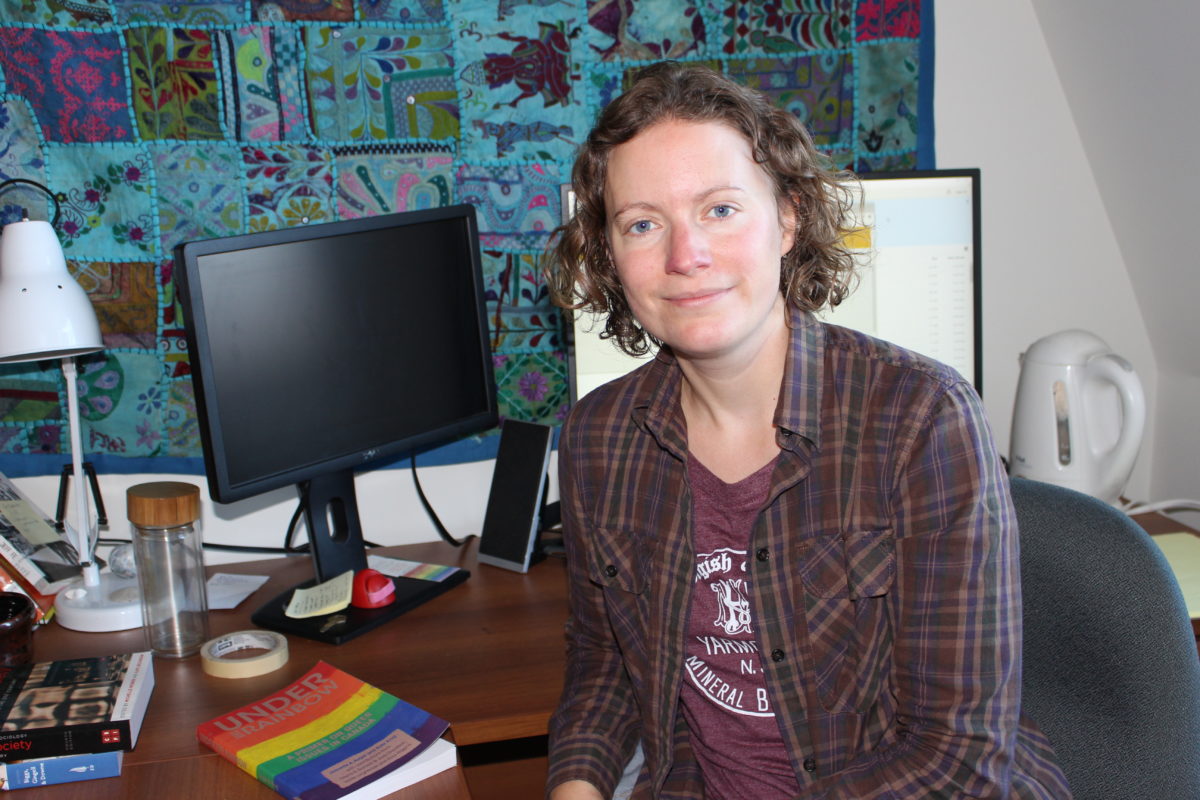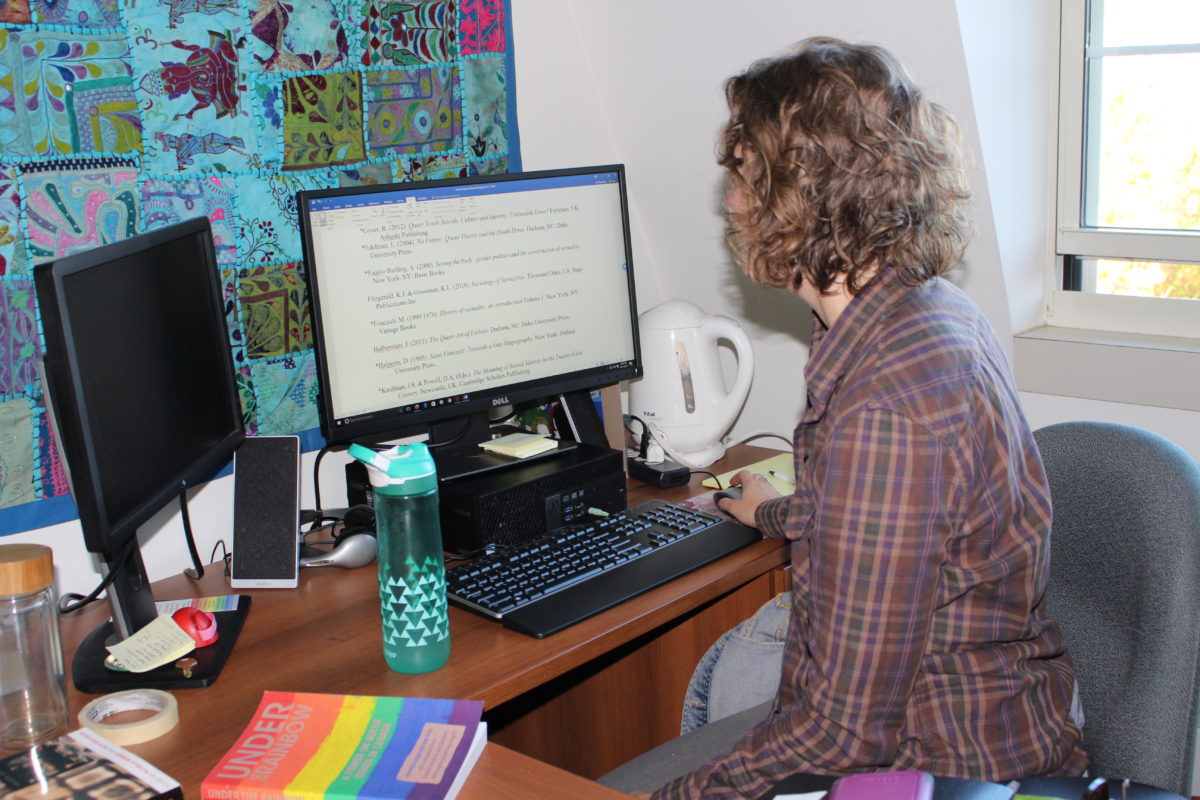
What is now a standard class at other universities may be added to St. Thomas University’s list of sociology course offerings next year.
A third-year course titled Queer Sociology is in the works. After students approached professor Erin Fredericks about the idea, she decided to make it happen. With the help of fellow professor Kristi Allain, they created a proposal.
“One of the big issues is that people often conflate sexuality and gender, and sort of stick them together. And so, we wanted to have the separate course so that it’s really clear that those are two separate areas of study,” said Fredericks.

The curriculum will discuss what it means to be queer in a heteronormative society, what heteronormativity is, as well as the word queer, itself. The main thinkers on queer identities, the coming out process, marginalization and families of choice will also be explored.
“A lot of writing about queer people, doesn’t come from academia, it comes from … social movements, and from queer people that are blogging and that sort of thing,” she said.
“The goal is to ground everything in the lived experiences of queer people.”
Allain said interested students can further develop an understanding of gender identities and sexualities.
“We have many students in our current gender courses and our [honours] program who want to explore issues related to queer sociology more directly and in more depth.”
Fourth-year sociology honours student Olivier Hébert will not have the chance to take Fredericks’ new course next year, but wishes they could. Because it’s a third-year course, Hébert thinks it will be more complex than the second-year classes offered.

“It’ll allow [students] to like really critically go in and look at the theory behind things, and really [dig] deeper than ‘gender is a construct.’”
As the gender and sexuality representative of the St. Thomas University Students’ Union, Hébert admits to being knowledgeable. However, they acknowledge they are not fully educated on everything.
“One thing I feel I have a big lack of education on is my own history. I know, like, fuck all … I am wholly uneducated. [This] would be a good place to start hearing about those big thinkers … [and look] at how long ago [people started] writing things about there being something other than man and woman.”
The proposal will be reviewed in November, and should pass through smoothly, according to Fredericks. The third-year class should be available to students next year and will likely be taught by either Fredericks or Allain.
“Good thing I’m [in] second-year now,” said Alex Goddard, a sociology student.
“I got little heart palpitations thinking about it. That sounds like a fantastic course.”
He also believes the history of the queer community is important for himself and others to be educated on, including those not part of the community.
“I would love to know my people’s history, and all of the fights and all struggles that they had [gone] through. And I think a lot of other people would like to be informed on that too.”
Goddard specifically wants to learn more about Canada’s history with the LGBTQ community and “if we have any dark pasts, because Canada likes to hide things,” he said.
“I am really excited for it, and I really look forward to it and I definitely will take it.”
